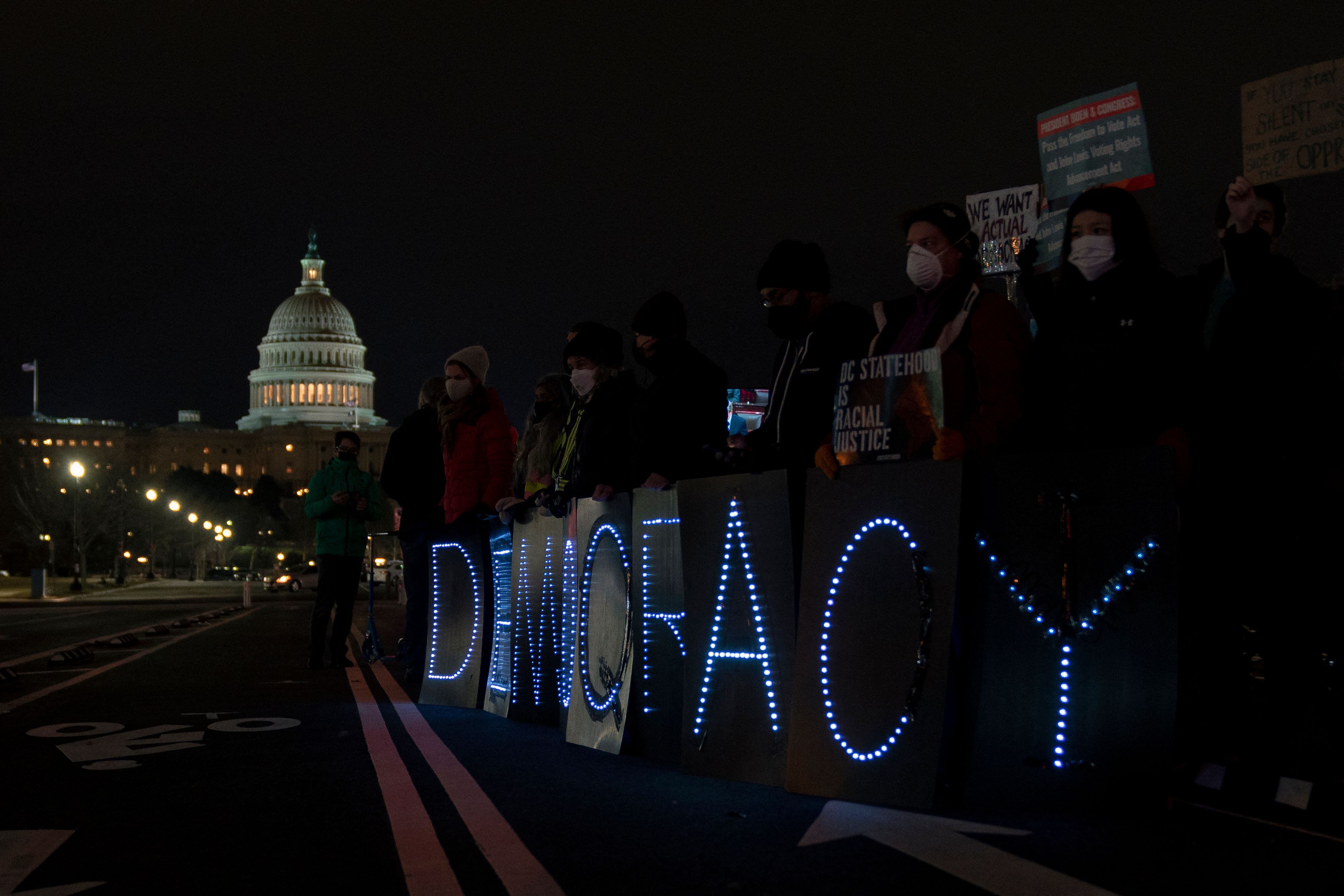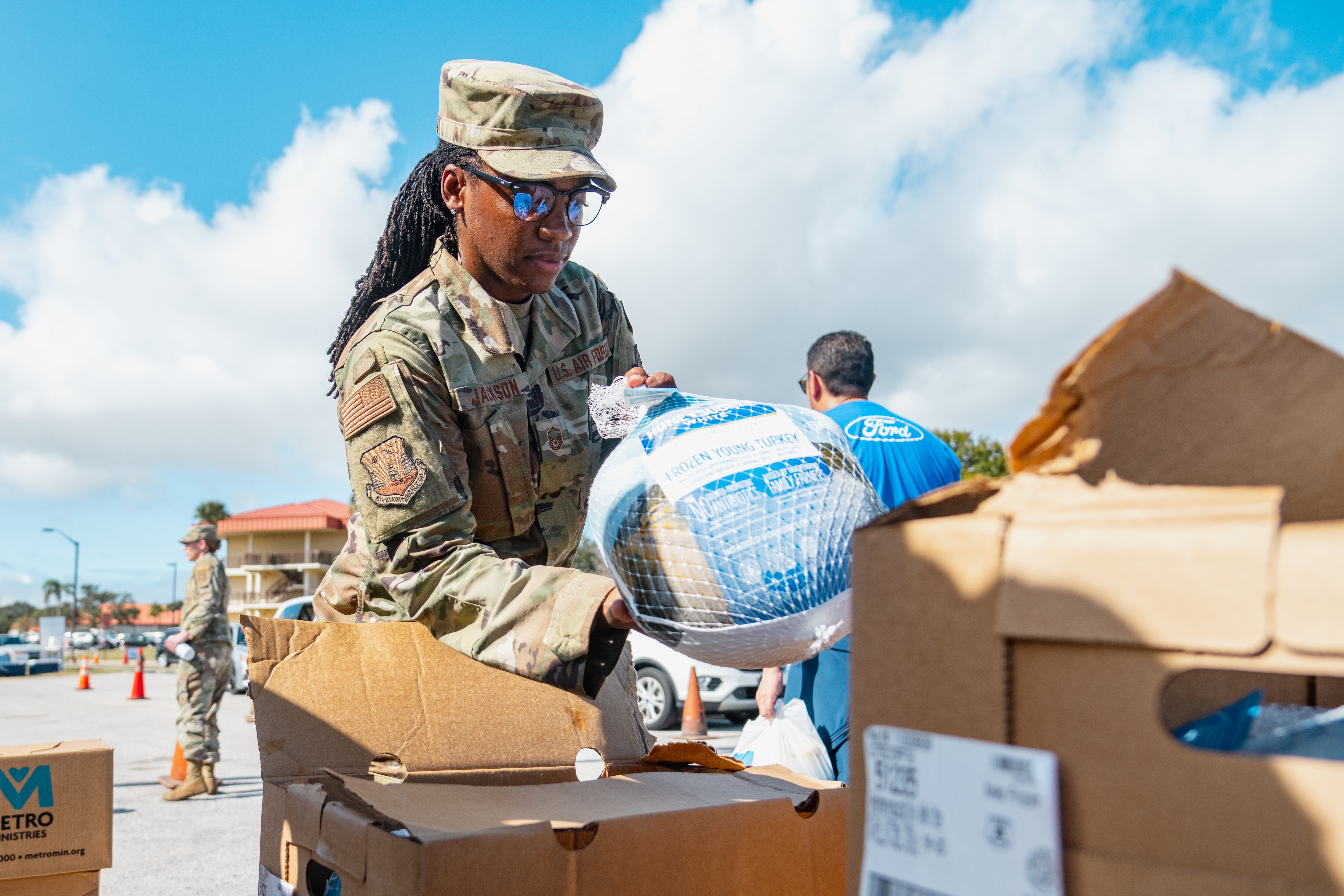As former senior defense officials and military leaders, we strongly urge Congress to pass bipartisan reforms of the Electoral Count Act of 1887, or ECA, before the end of this year.
In 2021, for the first time in history our nation did not have a peaceful transfer of presidential power. This was the result of attempts to use deficiencies in the ECA to overturn the results of a free and fair election. The instability that stemmed from this event continues to be a threat to our security domestically and internationally.
Our Constitution provides that power, including the president’s role of Commander in Chief and authority to utilize military force, comes from the consent of the governed gained through free and fair elections. The results of these elections should be determined according to the rules that are in place on election day. There is no place for after-the-fact arguments to twist the rules to achieve a different outcome. That path leads to political violence, instability, and a crisis of legitimacy for whomever is inaugurated as president.
The national security implications of such a crisis are grave. Presidential transitions are periods of national security risks as responsibility is transferred from one administration to another. Military leaders around the world watch us closely so that they can accurately advise their political leaders on appropriate security measures. The vulnerabilities of our own presidential transitions could lead to catastrophic misperceptions abroad. The possibility of a post-election constitutional crisis could serve to embolden our adversaries and demoralize our allies.
Consider the implications if a president is sworn in whom half the country believes is illegitimate and whose decisions — including in the national security sphere — are doubted and even resisted. Graver still is the prospect that U.S. military forces or law enforcement might be used to quell the nationwide civil protests and disturbances that would surely accompany such a crisis. Such a use in response to any president’s orders might irreparably destroy the bonds between our military and those we serve. Our adversaries will see this, and may calculate that they can take aggressive action against U.S interests, believing our civil-military cohesion so broken as to make the U.S. exceedingly vulnerable.
Thankfully, there is a viable effort in Congress to clarify the process through which we ensure that the will of the people is respected in our elections. The Electoral Count Reform Act, introduced by a bipartisan working group of senators earlier this year, has advanced out of the Senate Rules Committee with near-unanimous support — including Senate Majority Leader Chuck Schumer, D-N.Y., and Senate Minority Leader Mitch McConnell, R-Kentucky. This legislation enjoys 38 cosponsors, including robust support from members of both political parties. In September, the House passed its own reform legislation, the Presidential Election Reform Act, with the support of the entire Democratic caucus and nine Republicans.
These efforts are the result of the compromise and diligence by leaders from both parties who are committed to ensuring that state and federal leaders respect the will of the voters in presidential elections. These improvements are technical in nature and offer no advantage to either party. While there are some differences between the Senate and House bills, leaders of both efforts have expressed a desire to bridge those differences and get this done.
Much has changed since 1887, when the ECA was originally signed into law. The United States is now a global leader and the world’s leading democracy. Our allies look to us for stability; our enemies look to discredit our political system — all while our critical institutions face increasing doubt at home.
Amidst competing priorities demanding attention this fall, Congress must prioritize passage of the bipartisan Electoral Count Act reforms this year. Ensuring an accurate electoral vote count is essential to the peaceful transfer of power, and American national security. It will demonstrate to the world that despite their differences, our elected leaders are able to come together for the good of our republic.
By retired Navy Adm. Steve Abbot, retired Coast Guard Adm. Thad Allen, former Secretary of the Army Louis Caldera, retired Army Gen. George Casey, former Secretary of the Air Force Debbie Lee James, retired Air Force Gen. John Jumper, retired Air Force Gen. Craig McKinley, former Secretary of the Navy Sean O’Keefe and retired Marine Corps Gen. Tony Zinni.
Have an opinion?
This article is an Op-Ed and as such, the opinions expressed are those of the authors. If you would like to respond, or have an editorial of your own you would like to submit, please email us.
Want more perspectives like this sent straight to you? Subscribe to get our Commentary & Opinion newsletter once a week.










